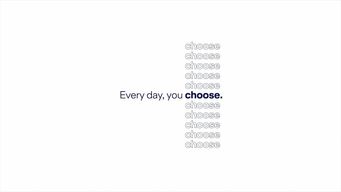A turning point for organisations accelerating their transition to circularity
ISO has officially begun the development of ISO/AWI 59001 – Circular Economy Management Systems – Requirements, marking one of the most significant advancements in global sustainability standardisation in the last decade. This new standard will provide the first structured, certifiable management-system framework dedicated entirely to circular economy principles.
For organisations navigating growing regulatory pressure, market expectations and internal sustainability commitments, ISO 59001 will offer a unified approach to implementing, managing and continually improving circular economy practices across operations and value chains.
What ISO 59001 Will Cover
According to the ISO project listing (Reference 80681), the future standard will specify requirements for:
Establishing and operating a circular economy management system
Embedding circularity into governance, planning and performance evaluation
Demonstrating organisational commitment to resource efficiency, value retention and systems thinking
Managing risks and opportunities linked to circular value chains
Ensuring continuous improvement in circular performance
The requirements will be generic and applicable to any organization — public or private, large or small, and operating at any stage of the value chain.
Crucially, ISO states that claims of conformity will only be acceptable when all requirements are fully implemented, indicating that this standard is intended to support credible, auditable, and potentially certifiable application.
Why ISO 59001 Matters
Until now, the ISO 59000 family — including ISO 59004 (Principles & Framework), ISO 59010 (Business Models & Value Networks) and ISO 59020 (Circularity Performance Measurement) — has provided guidance, not certifiable requirements.
ISO 59001 changes the landscape.
It represents the missing pillar of the series:
a requirements-based management system standard, much like ISO 9001 or ISO 14001, but focused exclusively on circularity as a strategic organisational objective.
This has major implications:
✔ Stronger governance
Organisations will be able to embed circular economy commitments into formal policies, objectives, KPIs and management review cycles.
✔ A structured pathway for implementation
ISO 59001 will connect the principles of ISO 59004, the transition guidance of ISO 59010 and the metrics of ISO 59020 into one operational system.
✔ Future-ready compliance
With global regulations (Ecodesign for Sustainable Products Regulation, CSRD, extended producer responsibility, waste prevention laws) rapidly accelerating, ISO 59001 positions organisations to demonstrate alignment with recognized international best practice.
✔ Foundation for credible certification
While no global certification scheme exists yet, this standard sets the stage for accredited third-party assessments in the coming years.
Looking Ahead
ISO 59001 represents a major step toward mainstreaming circular economy within globally recognised management systems. It will help organisations move beyond isolated initiatives and embed circularity into their strategic direction and daily operations.
For sustainability leaders, auditors, procurement teams and supply-chain professionals, this emerging standard will become a cornerstone for credible, structured and verifiable circular economy performance.
Although ISO 59001 is still under development, early preparation offers a competitive advantage. Companies that begin aligning with the 59000 family will be better positioned once certification frameworks emerge. Now is the time to get ready.












/Passle/5e4a7839abdfeb03584d01f6/SearchServiceImages/2026-02-16-20-54-01-203-699383e92a3147bfceee0000.jpg)

/Passle/5e4a7839abdfeb03584d01f6/SearchServiceImages/2026-02-09-20-02-11-944-698a3d43120a9705b5de07ff.jpg)
/Passle/5e4a7839abdfeb03584d01f6/SearchServiceImages/2026-01-12-19-21-10-475-696549a65262d0a2d84d8cc8.jpg)
/Passle/5e4a7839abdfeb03584d01f6/SearchServiceImages/2026-02-03-19-37-50-226-69824e8ed571d07845fdfbcf.jpg)